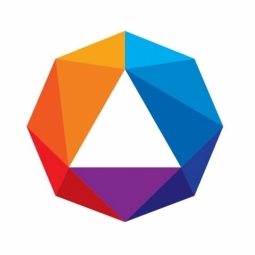Case Studies
-
(3)
- (2)
- (1)
- (1)
-
(2)
- (2)
-
(2)
- (2)
- (1)
-
(1)
- (1)
-
(1)
- (1)
- View all 5 Technologies
ANDOR
- (1)
- (1)
- (1)
ANDOR
- (1)
- (1)
- (1)
ANDOR
- (1)
- (1)
- (1)
ANDOR
- (3)
ANDOR
Please feel encouraged to schedule a call with us:
Schedule a Call
Or directly send us an email:
Compare
|
|

|
Worker Tracking & Safety Monitoring in Construction
One of the main challenges facing the technology was to create a network within underground tunnels and another was to provide products that can withstand harsh working environment. The team used amplifiers to enhance bandwidth and Litum produced IP67-rated hardware that is durable for harsh working conditions.
|
Download PDF
|
|
|

|
Automated Headcounts Brings Security for Ferrero
Accounting for more than 1200 personnel, as well as visitors, at any given time is an arduous task, and even harder in the chaotic environment of an emergency. Every second counts when it comes to the safe evacuation of individuals in such events.Ferrero needed a way to confirm that all its employees could be safely accounted when an emergency evacuation was underway. The manual method had gotten out of date -- tracking each individual through manual counting was time-consuming and introduced potential for errors. Even if all personnel appeared at the dedicated mustering points, the employee roster for any given day could not be accurately obtained, especially when visitors were also in the building.Ferrero takes safety for these employees seriously and was recently seeing a solution that leveraged the latest that technology has to offer. The company’s internal audit system requires employee headcounts fast. After all, seconds can be critical when an emergency takes place and people need to be accounted for.
|
Download PDF
|
|
|

|
Simeco Streamlines Teka Oven Line Assembly with RFID
Simeco is the manufacturer of Teka premium cooking appliances. Teka strives to combine quality, convenience and efficiency in everything they do, to achieve the best solution for its customers. The joint effort to provide “meaningful experiences” for their customers begins at Simeco’s 24,000 square meter manufacturing facility, which has the capacity to build 500,000 units a year, on its six production lines. It is at this site where the company manages the materials used for assembly, the assembly process itself, and also constantly seeks ways to improve efficiency and eliminate errors.As part of that effort, Simeco wanted a technology-based solution that would automatically monitor the receipt and consumption of materials, as well as the work taking place on its production lines, and automatically detect and prevent any errors in the testing and control processes.The company wanted the technology not only to bring real time visibility into its product processes, it wanted a way to manage the overall equipment effectiveness (OEE) as well.Simeco needed an automated system to be able to detect and identify when an error could be made in mounting components, as well as provide support for assembly workers by displaying relevant instructions on the assembly floor. The technology also needed to be able to capture analytical data so the company could continue to improve its processes.Litum’s UHF RFID solution automatically tracks a tagged component or unit as it moves through assembly. With location and status data from the solution, the software can provide contextualized information to those on the assembly floor and to managers overseeing processes, historically as well as in real time.To ensure the technology would meet the company’s needs, Litum customized the solution, thereby reducing costs. One example was the engineering of the tags themselves: Litum worked with Simeco to develop a reusable tag, thereby increasing sustainability and reducing cost. The reusable tags, attached and detached with a specialized assisting tool, uniquely identify a component, and can be detached and reused on subsequent assembly processes.Litum also specially designed the middleware to integrate with the brand's existing manufacturing system. The result is a software platform known as the Simeco Traceability Software.
|
Download PDF
|
